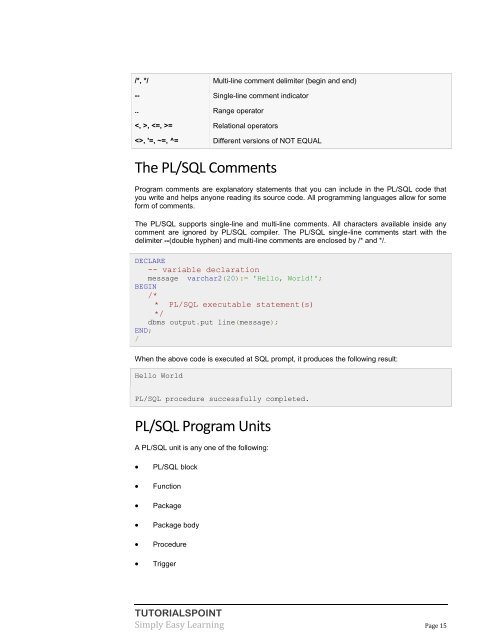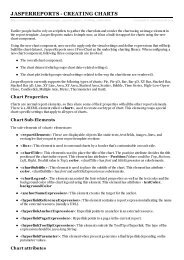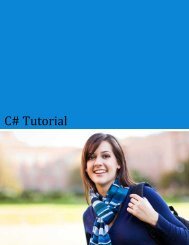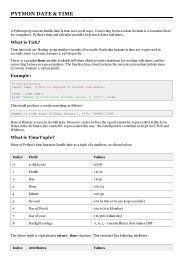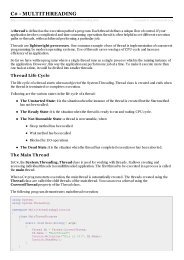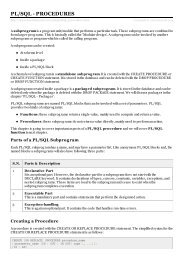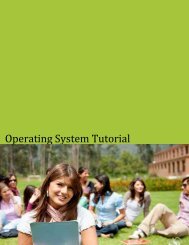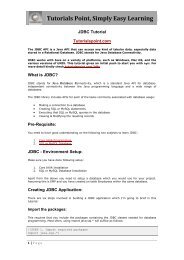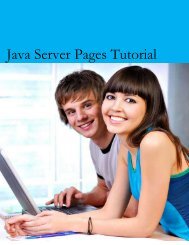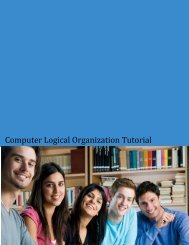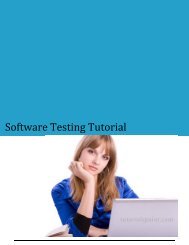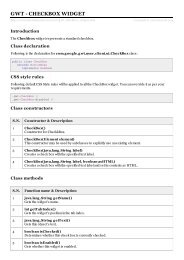download pl/sql tutorial (pdf - Tutorials Point
download pl/sql tutorial (pdf - Tutorials Point
download pl/sql tutorial (pdf - Tutorials Point
You also want an ePaper? Increase the reach of your titles
YUMPU automatically turns print PDFs into web optimized ePapers that Google loves.
*, */ Multi-line comment delimiter (begin and end)<br />
-- Single-line comment indicator<br />
.. Range operator<br />
, = Relational operators<br />
, '=, ~=, ^= Different versions of NOT EQUAL<br />
The PL/SQL Comments<br />
Program comments are ex<strong>pl</strong>anatory statements that you can include in the PL/SQL code that<br />
you write and helps anyone reading its source code. All programming languages allow for some<br />
form of comments.<br />
The PL/SQL supports single-line and multi-line comments. All characters available inside any<br />
comment are ignored by PL/SQL compiler. The PL/SQL single-line comments start with the<br />
delimiter --(double hyphen) and multi-line comments are enclosed by /* and */.<br />
DECLARE<br />
-- variable declaration<br />
message varchar2(20):= 'Hello, World!';<br />
BEGIN<br />
/*<br />
* PL/SQL executable statement(s)<br />
*/<br />
dbms_output.put_line(message);<br />
END;<br />
/<br />
When the above code is executed at SQL prompt, it produces the following result:<br />
Hello World<br />
PL/SQL procedure successfully com<strong>pl</strong>eted.<br />
PL/SQL Program Units<br />
A PL/SQL unit is any one of the following:<br />
<br />
<br />
<br />
<br />
<br />
<br />
PL/SQL block<br />
Function<br />
Package<br />
Package body<br />
Procedure<br />
Trigger<br />
TUTORIALSPOINT<br />
Sim<strong>pl</strong>y Easy Learning Page 15


